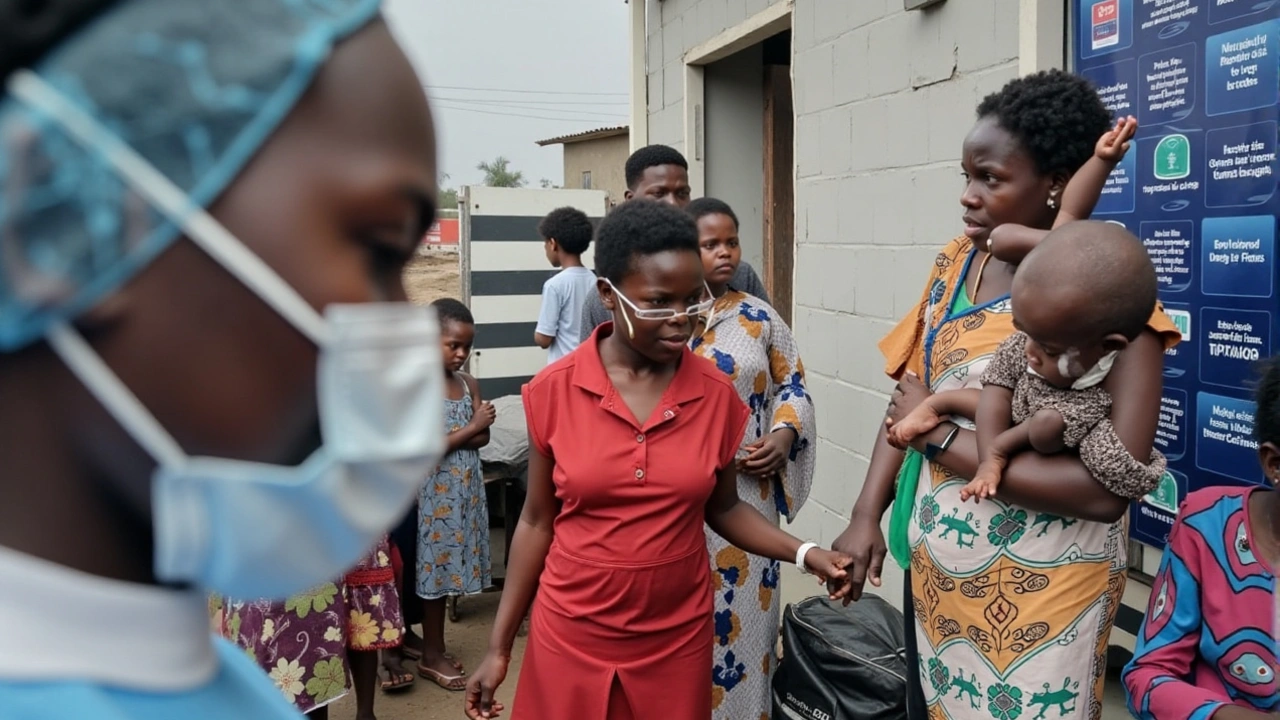MPox Crisis Declared in Pakistan and Sweden: Global Efforts to Combat the Threat
Understanding MPox and the Global Health Emergency
The World Health Organization (WHO) has declared MPox, formerly known as monkeypox, as a Public Health Emergency of International Concern (PHEIC). This declaration follows a significant rise in cases globally, with notable outbreaks in Pakistan and Sweden. MPox is a viral infection that can be transmitted from animals to humans and between humans. The WHO's decision underscores the urgent need to address this growing public health crisis.
Dr. Tedros Adhanom Ghebreyesus, the WHO Director-General, emphasized that the declaration aims to mobilize an international response to control the spread of the virus. The declaration serves as a call to action for governments, healthcare systems, and global health organizations to enhance their efforts in monitoring, treating, and preventing MPox. Immediate steps are crucial to preventing further spread and mitigating the impact on public health systems worldwide.
Surge of Cases in Pakistan
In Pakistan, the rise in MPox cases has been particularly alarming in urban centers such as Karachi and Lahore. These cities have seen an exponential increase in infections, putting immense pressure on local healthcare facilities. Health authorities are working tirelessly to manage the outbreak with measures including mass vaccination drives and rigorous contact tracing protocols. Public health campaigns are being intensified to raise awareness about the virus, its symptoms, and ways to prevent transmission.
Multiple challenges complicate the response to MPox in Pakistan. High population density in urban areas, coupled with limited healthcare resources, makes it difficult to contain the virus. Vulnerable populations such as children, pregnant women, and immunocompromised individuals are at higher risk of severe complications. The government, in collaboration with international partners, is prioritizing these groups for vaccination and early treatment.
Impact on Sweden
In Sweden, health authorities have also reported a significant number of MPox cases. The outbreak has led to the implementation of increased public health measures and surveillance to curb the spread. The Scandinavian nation is known for its robust healthcare system, and this is being leveraged to respond effectively to the crisis. Mass vaccination campaigns are underway, and emphasis is being placed on improving public awareness regarding the virus.
Dr. Maria Van Kerkhove, the WHO’s Technical Lead on COVID-19, has pointed out that while MPox is not as contagious as COVID-19, it poses substantial risks to specific segments of the population. Public health messaging in Sweden focuses on educating these groups about the potential dangers of MPox and encouraging them to take preventive measures. These initiatives are vital in reducing transmission rates and ensuring that the healthcare system can cope with the influx of cases.
Global Response and Coordination
The declaration of MPox as a PHEIC by the WHO is not just a signal for individual countries but a call for global solidarity and coordinated action. Dr. Michael Ryan, WHO’s Executive Director for Health Emergencies Programme, has stressed the importance of early detection and rapid response. Countries are urged to bolster their surveillance systems, improve diagnostic capabilities, and ensure that there are adequate supplies of vaccines and treatments available.
Boosting public awareness is another critical component of the response strategy. Health organizations worldwide are engaging in extensive public education campaigns to inform people about MPox, its symptoms, preventative measures, and what to do if they suspect an infection. These efforts aim to reduce transmission and alleviate the burden on healthcare services.
Equitable distribution of vaccines is a focal point in the fight against MPox. The WHO is facilitating collaboration between countries to develop and distribute vaccines fairly, ensuring that even the most vulnerable and resource-poor nations have access. This strategy is essential for controlling the virus on a global scale and preventing future outbreaks.

The Way Forward
As the world grapples with the dual challenge of managing ongoing COVID-19 concerns and addressing the MPox outbreak, nations must remain vigilant. The dual focus on strengthening healthcare infrastructures and fostering international cooperation is the key to overcoming these public health emergencies. The experiences and lessons learned from managing the COVID-19 pandemic are invaluable in formulating strategies to combat MPox.
Pakistan and Sweden's proactive measures reflect a commitment to mitigating the impact of MPox. By ramping up vaccination efforts, enhancing surveillance, and educating the public, these countries set a precedent for how swift, coordinated action can address emerging health threats. However, the collaboration of global health bodies and relentless efforts on the ground are crucial elements in managing this crisis.
In conclusion, the declaration of MPox as a PHEIC serves as a stark reminder of the ever-evolving nature of global health threats. It calls for a swift and unified response to protect populations worldwide, particularly the most vulnerable. Through enhanced public health measures, robust vaccination campaigns, and international cooperation, the world can hope to contain MPox and prevent future outbreaks.
